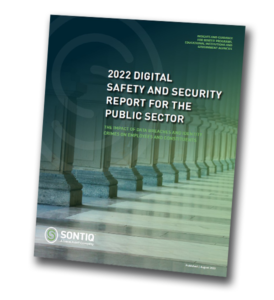Summary:
If there are funds that can be stolen, identity thieves are likely to be at work — and unemployment benefits are no exception. Nearly a third of Americans were affected by benefits fraud schemes in early 2022, with Medicare, Social Security and unemployment insurance often being targeted.
The criminal focus on benefits became pronounced during the pandemic, as fraudsters siphoned an estimated $163 billion in fraudulent payments from the aid intended for those in need. In 2022 the White House estimated that 19% of covid unemployment benefits were fraudulent payments — totaling over $80 billion.
Now that pandemic benefits have ended, fraudsters have taken the lessons they learned to target other unemployment programs. Whether you’re worried about your unemployment benefits being drained when you need them most or you’re concerned about how this fraud costs us all, recognizing the scam is important.
Signs of Unemployment Identity Theft
Much like medical identity theft or tax identity fraud, you may not find out about the theft associated with unemployment fraud until much later. Some people only discover they’ve been victims of unemployment identity theft when they file their own claim and their application is rejected because an identity thief maxed out the available funds. Other times, victims learn of the fraud because their employer is notified that their employee has been receiving unemployment benefits.
Additional signs that you may have been affected include:
- Requests for information from your state’s unemployment office
- Loan rejections based on your employment status
- IRS letters about underreporting of benefits you’ve supposedly received
- An unexpected 1099-G form showing unemployment benefits that you didn’t collect
How to Protect Yourself from Unemployment Fraud
To protect against this type of unemployment identity fraud, a proactive approach is important. Consider these strategies:
- Guard your Social Security number as this is the most important piece of information that thieves need to steal your identity and commit fraud. Only give out the number when absolutely necessary. Do not enter your number on forms unless you know how the paperwork will be used. Do not carry your Social Security card with you, and if you suspect that it has been lost or stolen, take steps to replace it and monitor for any suspicious activity.
- Don’t enter your birthdate on social media. Sharing your age and exact date of birth online gives thieves another piece of useful information that can be used to commit synthetic identity theft.
- When using public Wi-Fi networks, don’t visit any sites that require a username and password to access. Avoid using websites that contain information like your health insurance data, banking, credit card numbers and credit report results. If you do need to connect, make sure you have mobile security features, including a virtual private network (VPN), on your mobile device to help keep information protected.
Are You a Victim of Unemployment Identity Theft?
If you receive a 1099-G tax form or an unexpected letter from your state unemployment insurance office that details benefit claims that you have not made, you should report the suspected fraud immediately.
- Report the fraud. The U.S. Department of Labor lists the websites and tip hotlines for reporting unemployment fraud in different states.
- File a non-emergency police report so you have documentation of the suspected identity theft.
- Notify your current employer and any former employers during the past 18 months that you believe your identity was used to file for false unemployment benefits.
- Consider placing credit freezes with all three major consumer credit bureaus, which will make it more difficult for someone to open or extend credit using your information. TransUnion details how to protect your credit following unemployment benefits fraud, but to place a credit freeze, contact:
- TransUnion – Call 800-916-8800
- Equifax – Call 800-349-9960
- Experian – Call 888‑397‑3742
- File a complaint with the FTC.
Acting quickly can help stop improper payments and creates a record of your efforts to stop the theft. Once the fraud has been handled, ask your company’s HR department to verify that your employment files are accurate.
By staying vigilant and reporting any suspicious activity in a timely manner, you can help keep unemployment identity theft from compromising your personal information. You might also consider a credit and identity monitoring service like IdentityForce. Not only will it notify you if there is suspicious or fraudulent activity involving your personal information, but it will provide you access to seasoned identity restoration specialists 24/7 if you discover you’re the victim of identity theft.
Digital Safety and Security Report for the Public Sector
Government agencies and other public sector organizations need to remain aware and vigilant against fraud. Our recent white paper shows how public sector organizations are in a unique position to help their employees and constituents secure their digital safety. At the same time, they can build greater loyalty and trust in the organization, retain valuable staff, and increase engagement with the organization’s digital programs and services





